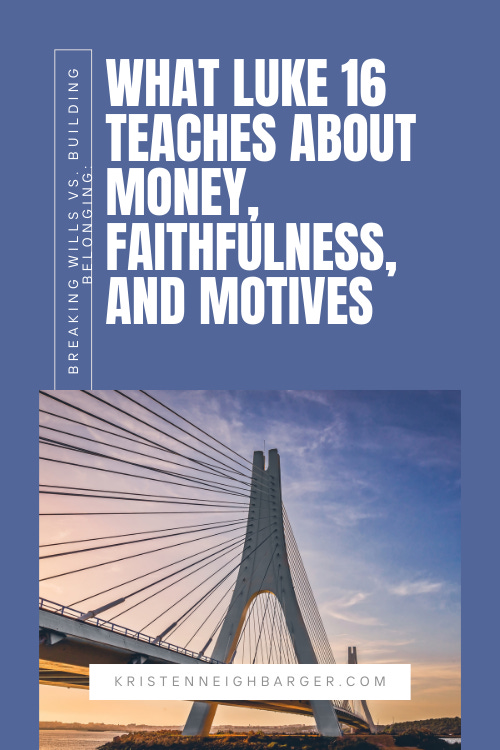
Breaking Wills vs. Building Belonging:
Growing Up as a “Strong-Willed” Child
The ‘80s and ‘90s were interesting decades for “strong-willed” and “gifted” children.
In light of James Dobson’s recent passing, I’ve been reflecting on the damage his parenting advice had on my generation—and how it infiltrated churches and families. His approach focused on hierarchies, breaking of wills, and giving “gifted” kids extra work, while endorsing corporal punishment to keep children in line. The goal? Resilient, obedient, productive members of society.
My brother fit the “strong-willed gifted child” description to a tee. Truth be told, I wasn’t far behind. Now, we’re both strong-willed ADHD adults—so that’s fun.
Somewhere on this journey, I learned a valuable parenting and relationship lesson: people respond better when you don’t attack them or try to break their will.
The root of our humanity is the need to be seen, heard, and validated—as children and as adults.
What worked for us as kids was logic, love, and validation. What never worked was yelling, threatening, or the phrase, “because I said so.”
And that makes me think about how Jesus interacted with the Pharisees.
Two Audiences at the Table in Luke 16
Luke ends chapter 15 with three familiar parables: the Lost Sheep, the Lost Coin, and the Lost Son. Chapter 16 opens with Jesus turning to teach his disciples. But Luke notes that the Pharisees were still present and listening.
There were two different audiences at Jesus’s table:
The disciples, who received direct teaching.
The Pharisees, who were listening in and ready to sneer.
The parable Jesus tells here is the Parable of the Dishonest Manager (Luke 16:1–13). The underlying message is the importance of using temporal wealth with eternity in mind. The manager knows the present system is ending, so he leverages resources to secure future relationships.
Jesus tells his disciples: Do the same with earthly wealth—use it to build kingdom relationships, because this world’s system is passing.

Jesus Confronts the Pharisees with Integrity, Not Shame
Then Jesus pivots. Without shouting or attacking, he speaks truth:
“If you have not handled the riches of this world with integrity, why should you be trusted with the eternal treasures of the spiritual world?...You cannot serve both God and money.” (Luke 16:11–13, TPT)
Luke notes:
“The Pharisees, who loved money, heard all this and were sneering at Jesus.”
Jesus responds:
“You justify yourselves in the eyes of others, but God knows your hearts. What people value highly is detestable in God’s sight.” (Luke 16:15)
Jesus takes a simple teaching about money and exposes a deeper heart issue: faithfulness versus appearances.
Why the “Random” Divorce Statement Isn’t Random at All
Next comes what seems like a left-field comment:
“Anyone who divorces his wife and marries another commits adultery…” (Luke 16:18)
But this wasn’t random to the Pharisees. In first-century Judaism, divorce was often used for financial gain—dowries, inheritance, and property were at stake. Men with power could dismiss wives cheaply, profiting while still appearing righteous.
Jesus’s word about divorce critiques how they twisted both money and law for selfish gain. He exposes how they found loopholes in God’s law to appear holy while remaining unfaithful.

Faithfulness Over Appearances
At first glance, Luke 16 looks like a lesson on stewardship. But beneath the surface, it’s about motives, faithfulness, and integrity.
What strikes me is that Jesus never tried to “break their wills.” He didn’t scream or manipulate. He named truth, exposed motives, and invited reflection—even when mocked.
That takes me back to the parenting culture of the ‘80s and '90s. Will-breaking, threatening, and shaming never produced respect or transformation—only fear and performance. Jesus shows us a better way: one rooted in faithfulness, integrity, and the unseen motives of the heart.
A Seat at the Table for the Strong-Willed and Misunderstood
At the table of Jesus, your worth isn’t tied to how much you give, how polished your spiritual résumé looks, or even what your marital history says on paper. Your worth is found in being seen, heard, and loved by the One who knows your heart.
That’s good news for every one of us who has ever been measured, weighed, or excluded by systems that valued appearances over authenticity. Jesus isn’t asking you to perform; He’s inviting you to belong.
So maybe the question isn’t just, “Am I using my money wisely?” but, “Am I living faithfully—even in the hidden places of my heart?”
Jesus’ way invites us from performance to presence, from appearances to authenticity. That’s what opens up the table for all of us—the strong-willed, the misunderstood, the ones who’ve been told we don’t measure up.
Reflection Questions
Where in your life have you felt like others were trying to “break your will” instead of seeing and valuing you?
How have systems of money, power, or appearance shaped your experience of belonging—or exclusion—in faith spaces?
What might faithfulness look like for you today, not just in your finances, but in your motives, your relationships, and your hidden places of the heart?
